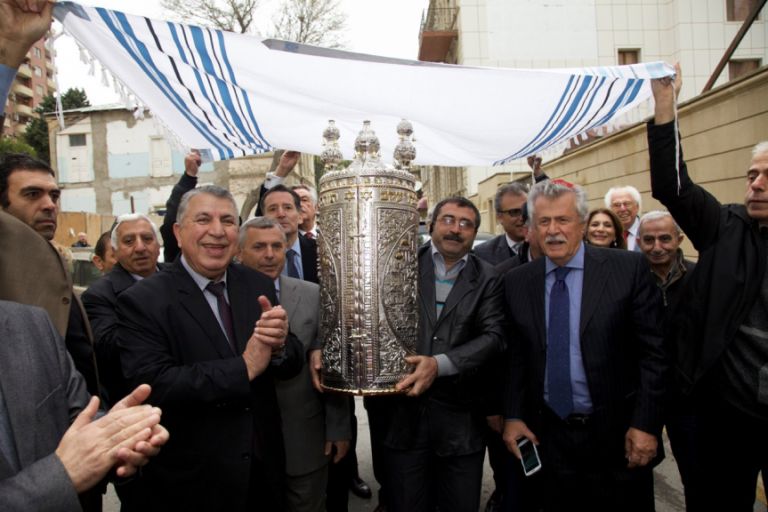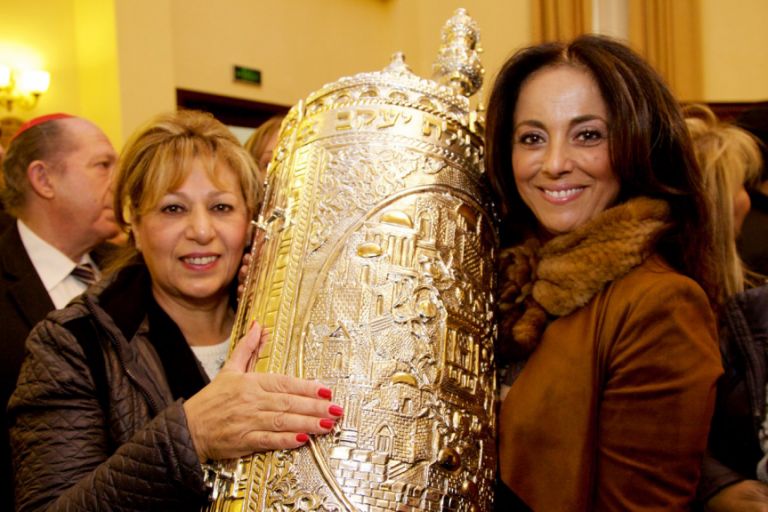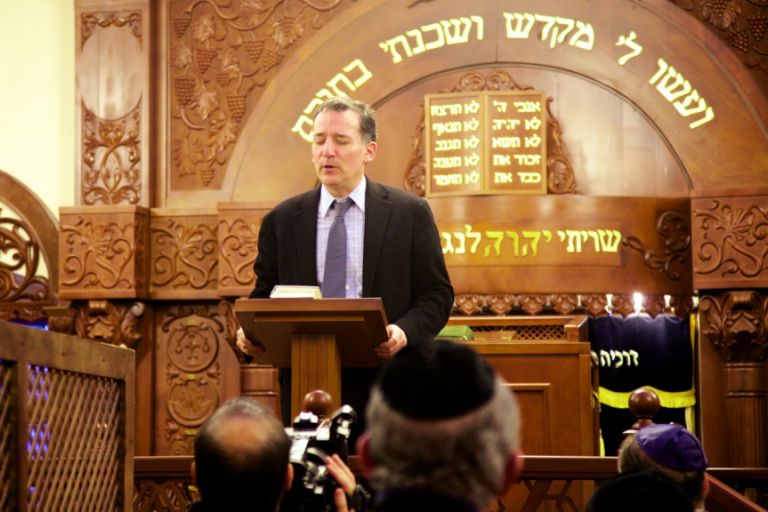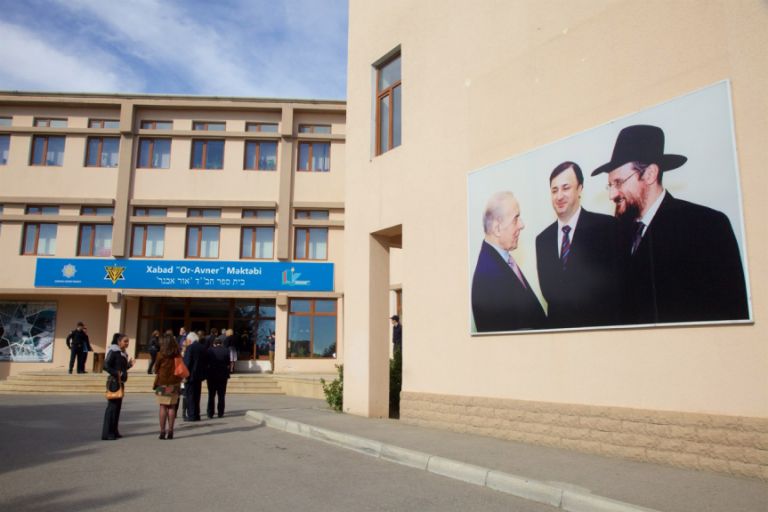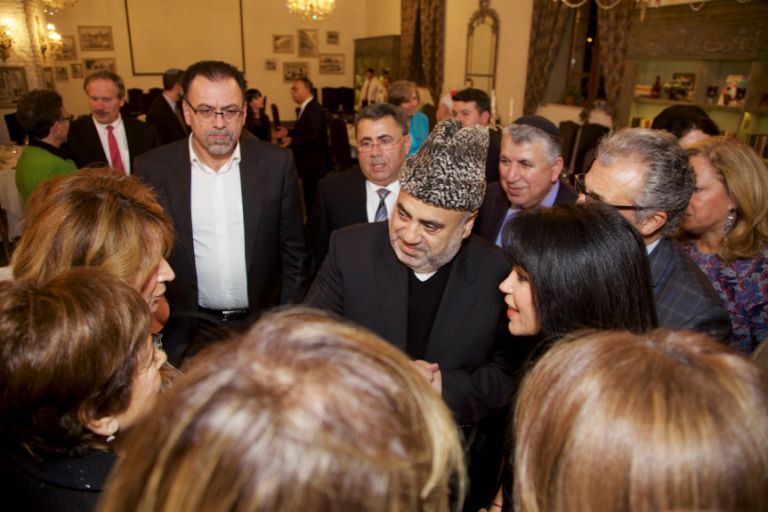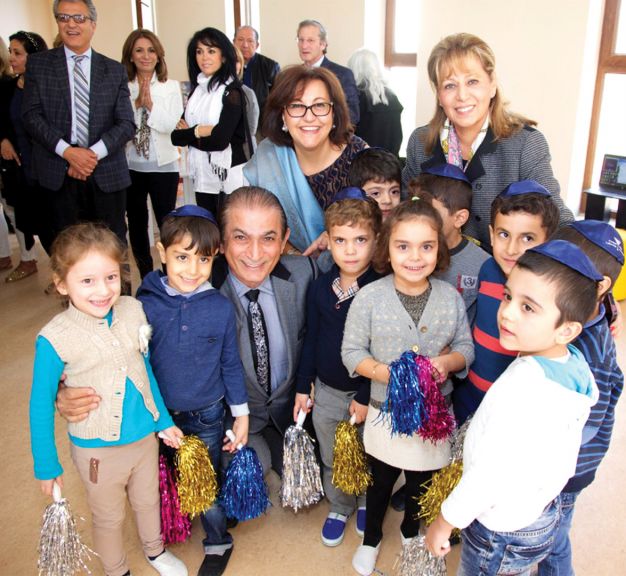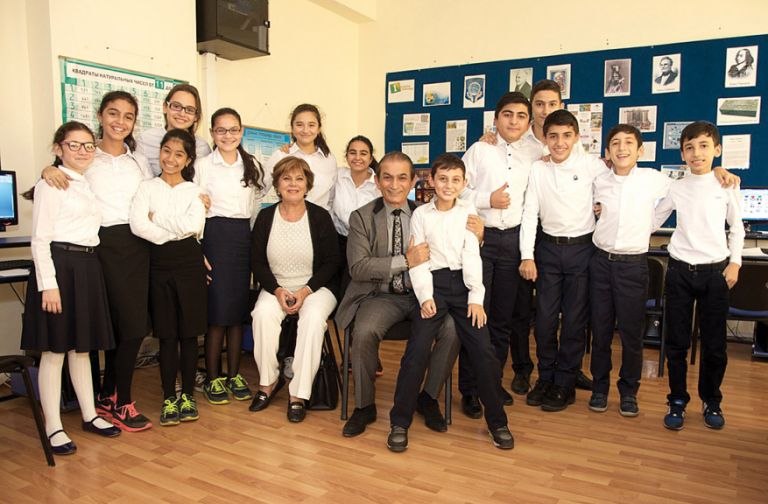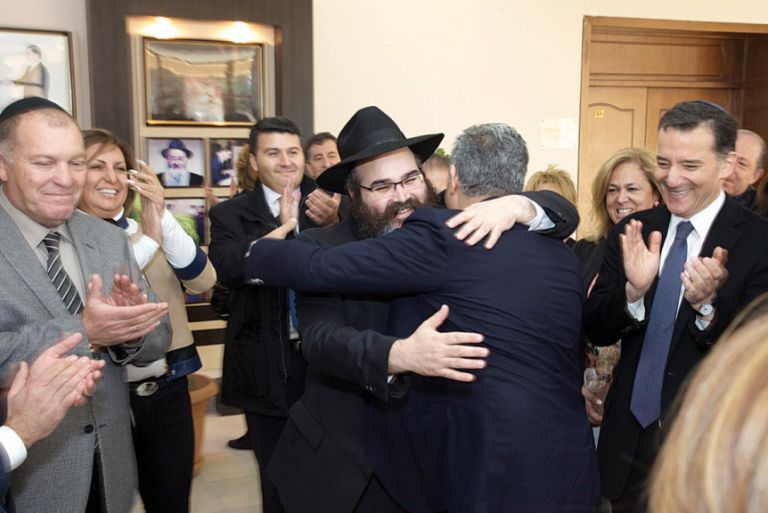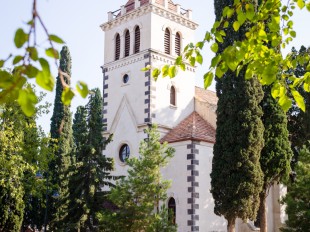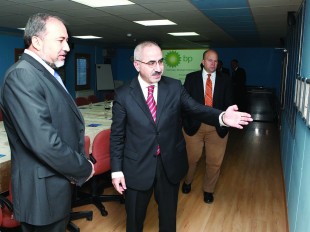Visions of Azerbaijan has kindly been granted permission to re-print an article written by Yael Lerman Mazar, the director of Legal Affairs at StandWithUs, who explains how a Muslim, democratic country restored her faith in the Jewish state. The article was published in The Jerusalem Post in mid-November 2015, we present the text exactly as it appeared.
We arrived in Israel from Los Angeles nearly three months ago to enable our three young children to feel part of the Jewish homeland, learn Hebrew, and experience the fabled Israeli childhood. Instead, what greeted us was the greatest regional dust storm on record, unprecedented high temperatures and the “Stabbing Intifada.” Within weeks of moving, my children experienced a bizarre dichotomy: the joy of total independence for the first time in their lives because they could go to and from school by themselves on city buses; and the stress of being told to look out for possible jihadists when waiting at the bus stop.
Much to my sadness, my children first impressions of Palestinian Muslims were ones of fear and violence. They knew I was now driving to work in Jerusalem because my bus had a stabbing on it. They were with me when jihadists tried to set off explosive fireworks at the Western Wall—while we were praying below. And they were there a few weeks later when I was speaking to a secular Israeli-Arab store clerk, asking her why Israeli-Arabs were rioting and stabbing. She answered simply, with a smirk, “We are just waiting for it to return to how it was”—before the Jewish State of Israel. These interactions left me drained of any hope for coexistence.
Muslims and Jews all got up to dance together. Religion and gender did not matter
Enter into this tense backdrop the relatively unknown Muslim country of Azerbaijan. Last week, my father, Cary Lerman, and Rabbi David W. Wolpe, Senior Rabbi of Sinai Temple, helped lead a delegation of 50 Jews from Los Angeles to dedicate a Torah to the Mountain Jews of Azerbaijan. Eager to join, our initial questions were, “Is it safe for children?” “Is it safe for Jews?” “Is it safe coming from Israel?”
We arrived in Azerbaijan knowing nothing about this ancient people and new nation-state. We left a week later in love with this proud country, its generous government, and its beautiful people. We left filled with a renewed hope that coexistence between Muslims and Jews can be genuine, deep-rooted and all-encompassing.
Upon arrival, we learned some basic facts about Azerbaijan that seemingly do not exist in this combination anywhere else. First, it is a Muslim, democratic nation. Second, there has never been a pogrom in Azerbaijan. There is simply no anti-Semitism. This is not just a function of no incitement to violence by clerics. The people are proud of their pluralism and ethnic communities. Third, the government and people openly support the State of Israel. People on the street greeted us warmly when we told them we were visiting from Israel. In one of the high ranking government official’s offices, an Israeli flag stood alongside the Azerbaijan flag.
In addition, both Azerbaijan and Israel face existential threats from Islamic fundamentalism. Both are ancient, small countries surrounded by threatening nations. Both have diverse religious and ethnic populations —just as an Israeli-Arab sits on Israel’s Supreme Court, a Jewish woman sits on Azerbaijan’s Supreme Court.
While these are the facts that make Azerbaijan unique, the remarkable aspects of this nation are not in the facts but in the details.
Both are ancient, small countries surrounded by threatening nations
Azerbaijanis love children—all children. They smile warmly at them, hug them, take them out of your arms to express their warmth. While in an official meeting with the president of a university, my 3 year-old started crying and my husband quietly began to whisk her from the room. The University President stopped the meeting, walked over to my sobbing daughter, gently took her from my husband and returned to his seat, holding her in his arms and stroking her face for the rest of the meeting. My daughter basked in the love and patience of this stranger. The fact that he was Muslim and she was a Jewish-Israeli child meant nothing to either of them, in what we came to see as emblematic of the Azerbaijani ethos.
Azerbaijanis love their culture. When at one of the many banquets lavishly hosted by the Azerbaijani government in honor of our Torah dedication delegation, spontaneous dancing began to Azerbaijani music. Muslims and Jews all got up to dance together. Religion and gender did not matter. The shared love of music and movement seamlessly bridged all possible differences.
When the president of another university heard that my 9 year old daughter loved to dance, she organized a special hour-long dance performance by her dance students in honor of my family. It did not matter that they usually performed for Heads of State. The fact that a Jewish-Israeli girl was interested in learning about their culture was enough. Wearing resplendent costumes, Azerbaijani male and female students gave an electrifying performance and brought my children on stage to join them.
Azerbaijanis embrace their 1500 year-old Jewish community. At the Torah dedication ceremony, our delegation of Jews from Los Angeles danced the Torah into its new home alongside the Mountain Jewish community in Baku. But we were not alone. Muslim members of Parliament joined too to show support.
We arrived in Azerbaijan knowing nothing about this ancient people and new nation-state. We left a week later in love with this proud country, its generous government, and its beautiful people
When we walked through the ancient streets of Quba, the oldest Jewish shtetl still in existence, homes proudly adorned with large Stars of David and Menorahs on their exteriors. I cannot say that I would feel equally confident decorating my Los Angeles residence with prominent Jewish symbols and not fear vandalism or unnecessary exposure as a Jew. Yes, even in Los Angeles.
Towards the end of our trip, my 9 year-old asked me what religion our tour guide was. When I responded, “Muslim,” I could see her processing this information before she responded, “I love her.” That moment was transformative. It showed me Azerbaijan’s unique model for coexistence in a divisive world. Azerbaijan may not be a perfect country—no country is—but through children, music, and ingrained embracing of peoples’ differences, it has the recipe for genuine pluralism that all nations can learn from.
About the author: Yael Lerman Mazar is Director of Legal Affairs at StandWithUs, an international Israeli education organization.
